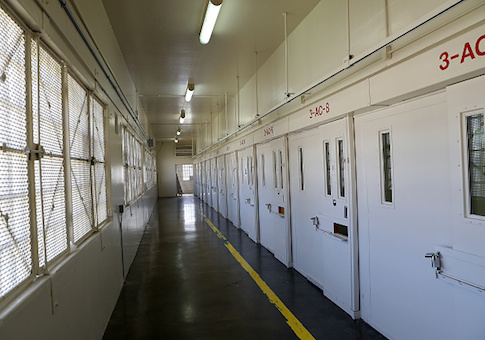The state of Oklahoma will aim to alleviate a death penalty moratorium by using inert gas inhalation, the state's attorney general announced Wednesday, making Oklahoma the first state in the nation to implement this form of execution.
The state would likely use nitrogen or a similar gas to induce hypoxia, a fatal oxygen deficiency, CNN reports. Inert gas inhalation is used in countries like Switzerland that have legalized physician assisted suicide. Studies of that process have suggested death is "potentially quick and appears painless."
"Using an (inert gas inhalation) will be effective, simple to administer, easy to obtain, and requires no complex medical procedures," Oklahoma Attorney General Mike Hunter said.
Oklahoma has had a moratorium on executions since October of 2015, following the discovery that Charles Warner, convicted of raping and killing an eleven-month-old, may have been executed using improper chemicals. This followed the much-publicized botched execution of convicted murderer/rapist Clayton Lockett, which ended only after Lockett died of a massive heart attack 40 minutes after execution drugs were administered.
Questions about the Oklahoma death penalty process's efficacy are not the only reason for the moratorium, however. Oklahoma's primary form of execution, like the other 30 states which preserve capital punishment, is lethal injection. But in recent years, lobbying of pharmaceutical firms by death penalty opponents has led to a shortage of the drugs used in lethal injection protocols. First thiopental, then pentobarbital were blocked from export to the United States.
The lack of access to effective, proven execution drugs has forced many states to turn to unorthodox sources and methods of execution. Some states have used the controversial drug midazolam, the effects of which have been the subject of a Supreme Court case. Others have proposed the use of fentanyl, the opioid responsible for nearly 20,000 deaths in 2016. And some have followed Oklahoma in considering alternative methods: the firing squad in Utah and the electric chair in Tennessee.
In spite of delays, voters in Oklahoma have made clear their support for the death penalty. In 2016, voters passed a ballot measure two to one adding language to the state's constitution that declared capital punishment not cruel and unusual. The measure also gave lawmakers permission to adopt "any method of execution not prohibited by the United States Constitution." That includes inert gas inhalation, which the state legislature had previously established as its "backup" method of execution.
